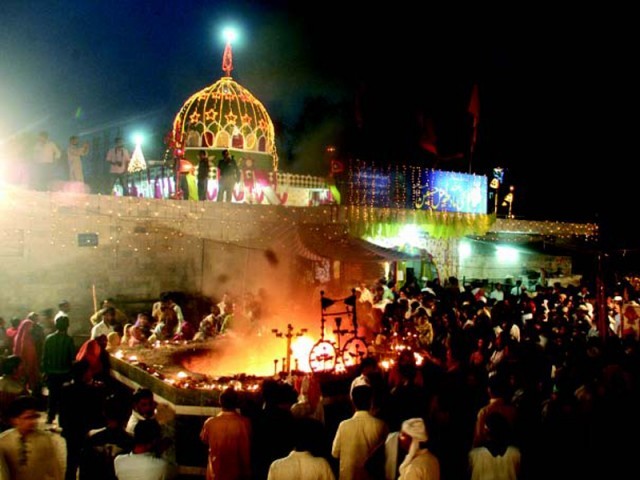
DI KHAN: Nearly 50 kilometres from Wana Bazaar, in the angelic calm of Birmal Valley lies the tomb of Musa Nika, who was a darveish. It is situated on the banks of Nika Alqad, the channel where the site gets its name.
The tomb was built by Akbar S Ahmad, a political agent of South Waziristan.
Over time, those elements who have tried to distort its historical essence have been largely unsuccessful. Recently devotees have voiced concerns that the shrine is situated too close to the water and may be raised to the ground in case of a natural catastrophe.
Nevertheless, a large number of people visit the shrine to ensure their wishes are fulfilled. In the past, many people walking barefoot over uneven banks, hoping that their hardship would make the darveish acknowledge their wishes and grant them their desires.
Zarmina Bibi, a resident of Waziristan, told The Express Tribune people visit the shrine with an array of wishes.
People who wish to be married to their beloved would often climb a tree outside the shrine and raise their hands in prayer, hoping to be heard in the heavens above. In some cases, it has worked and people hailing from the area have deep respect for the shrine as well as for the man that lies within it.
In 1929, Habibullah Bacha Saqao overthrew Amir Amanullah Khan in Kabul. Shortly after this, Amir Amanullah visited the shrine and prayed for strength. Later, in spite of the British political influence, Amir Amanullah took his throne back as the tribes overthrew Bacha Saqao. The legend is still remembered in the area, adding to the people’s love for Musa Nika.
“Musa Dervish is believed to have lived with cattle in Birmal and not many details about his life are known,” says Nisar Ahmad Nisar Lala. He continued saying that Musa had taken an oath and was under the tutelage of Bahadar Baba, a sufi from Kohat.
“In Waziristan, the tribes were traditional people, but they did set a lot of store in peers and ziarat,” says Gul Marjan, a PhD scholar and expert on Fata. “There are so many peers in history. Other such sites include, Pir Roshan, Pir Tareek and Roshanai Tehreek,” Gul Marjan added.
When religious fanatics came into power, the situation changed. People no longer set much store in saints and shrines, Marjan continued.
Published in The Express Tribune, August 13th, 2016.
















































COMMENTS
Comments are moderated and generally will be posted if they are on-topic and not abusive.
For more information, please see our Comments FAQ